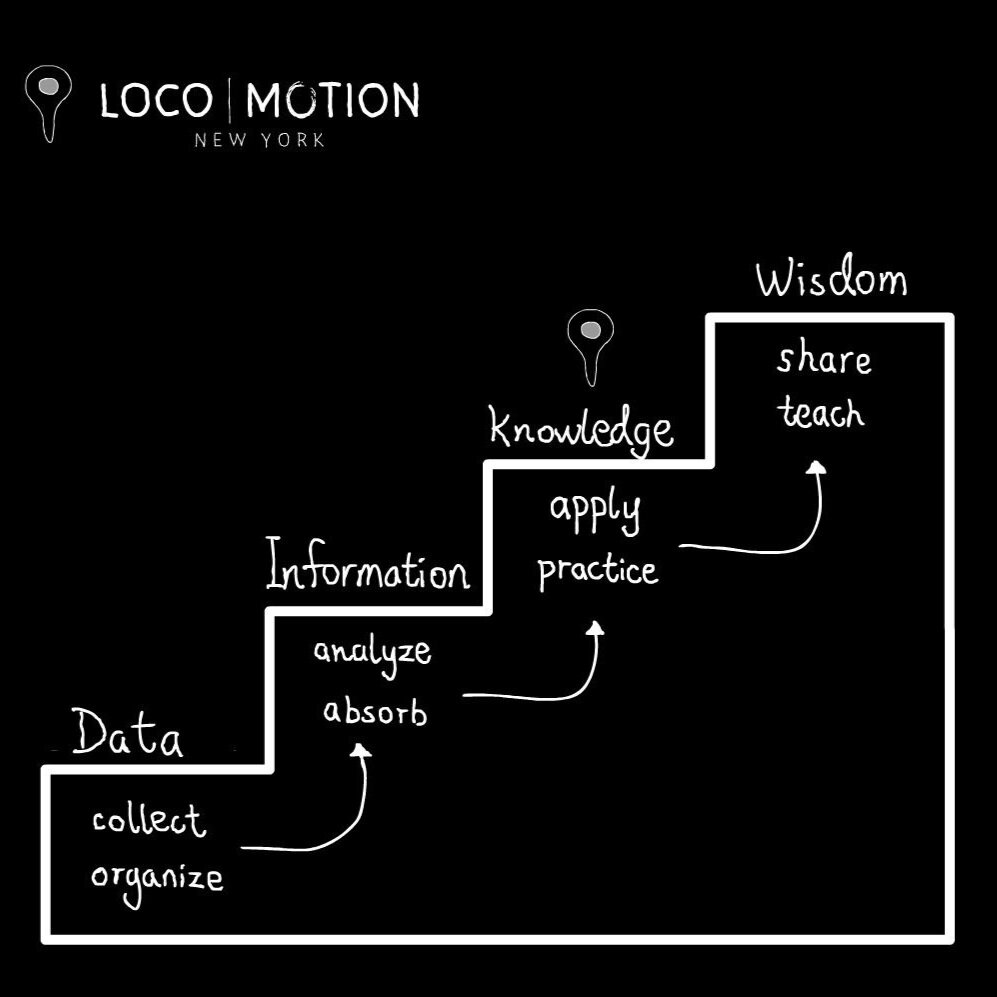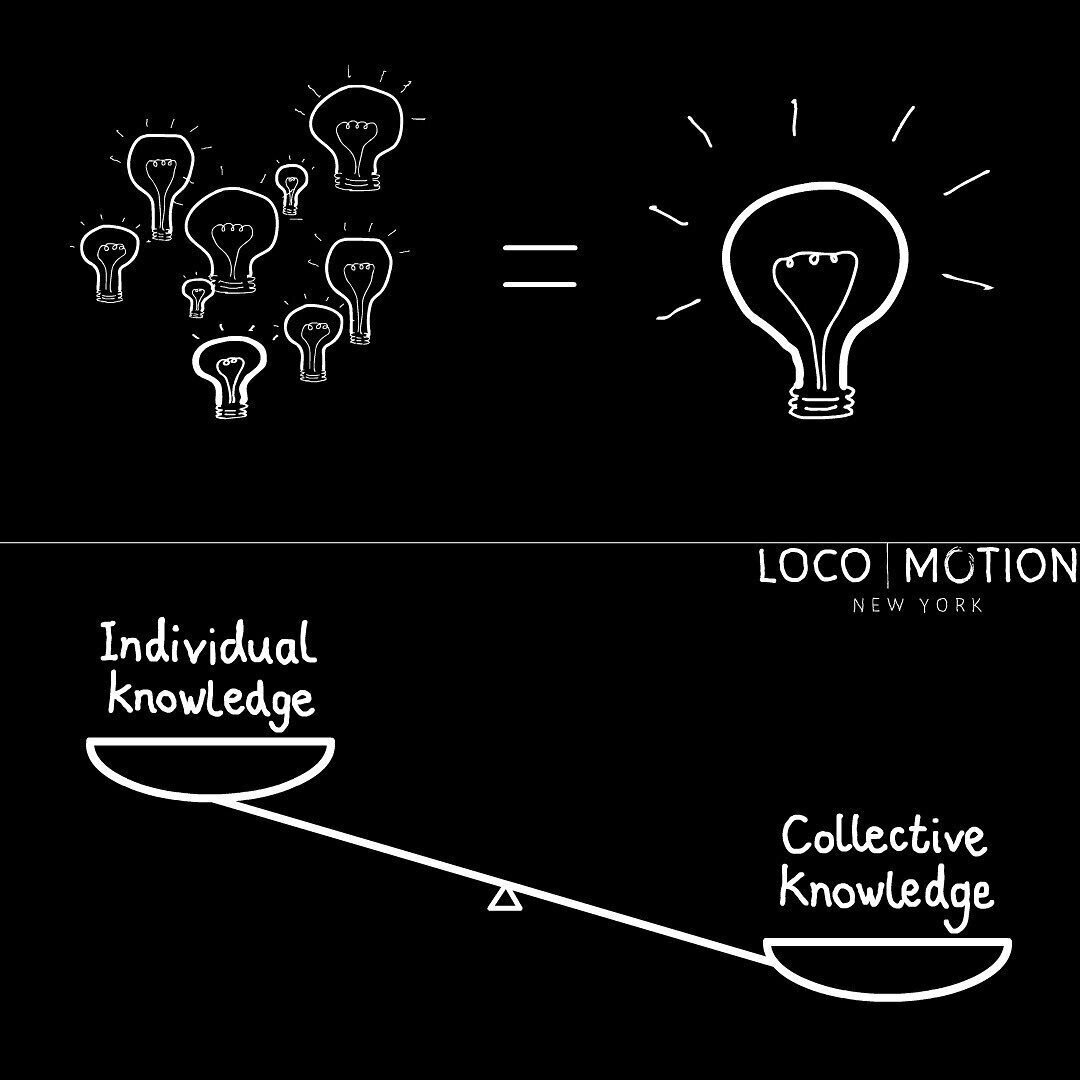What information consumes is rather obvious: it consumes the attention of its recipients. Hence, a wealth of information creates a poverty of attention and a need to allocate that attention efficiently among the overabundance of information sources that might consume it.
– Herbert Simon
A wealth of information creates a poverty of attention. Wow. Powerful quote.
Earlier this week we posted a graphic (shown below) discussing the various stages of “information”. The stages progress in the following order: Data, Information, Knowledge, Wisdom.
Image Credit : Bruce Shi
Data is defined as facts and statistics collected together for reference or analysis.
Information is this analysis of the data. It gives you an understanding of what the data means.
Knowledge is the application of such information. We will say that it is the information in practice. This is where we are now in our community. Our teachers have spent their lives gathering data and information, digesting and absorbing it, then practicing deliberately in order to develop KNOWLEDGE. An APPLICABLE form of data/information that allows us to learn through PRACTICE.
Wisdom, put simply, is what you receive as a student. Wisdom is the sharing and teaching of knowledge. It is the teacher who climbed the mountain, here to help you do the same. Many people stare up above and will tell you how to climb, but only the man at the top yelling instructions down has any merit.
We intuitively realize that we cannot know everything. We have limits to what we can specialize in, and how much data/information we can process and develop into knowledge, and even less that we can coagulate into concrete wisdom. Even doctors have “subspecialties”. It is because of this that we rely on collective knowledge to build a better world. Cooperation and community are the reasons for quickest and most significant advances in human history.
Collective knowledge, therefore, is far superior to individual knowledge.
Image Credit : Bruce Shi
Our goal as a community is to utilize this collective knowledge to not only improve the ability of all of our students; but to rapidly accelerate the learning curve of our newest students.
Collective knowledge is the “cheat code” to faster progress.
A wise man stands on the shoulders of giants. Only a fool would fall into the delusion of “I can do it myself.”
A wise man steals from other artists. Only a fool would start the creative process from a blank piece of paper.
A wise man knows how chaotic the application of knowledge can become. Only a fool would give keyboard advice after reading a book or two.
In order to avoid a “poverty of attention”, we must seek the RIGHT information. Collective knowledge in turn becomes Collective Wisdom, distilling it down to only what is needed, and at what time.
In what ways are you contributing to the collective knowledge of your community?


